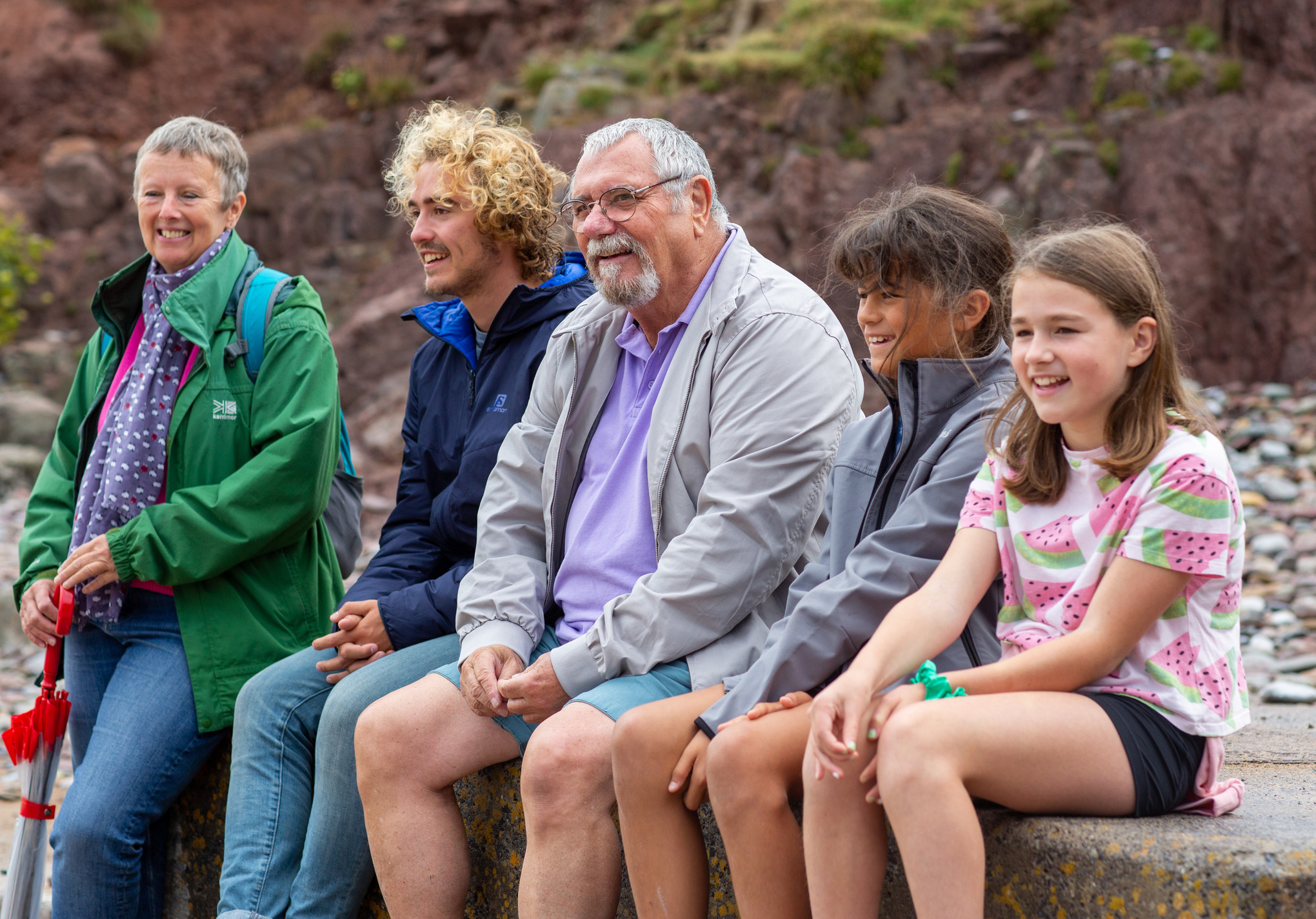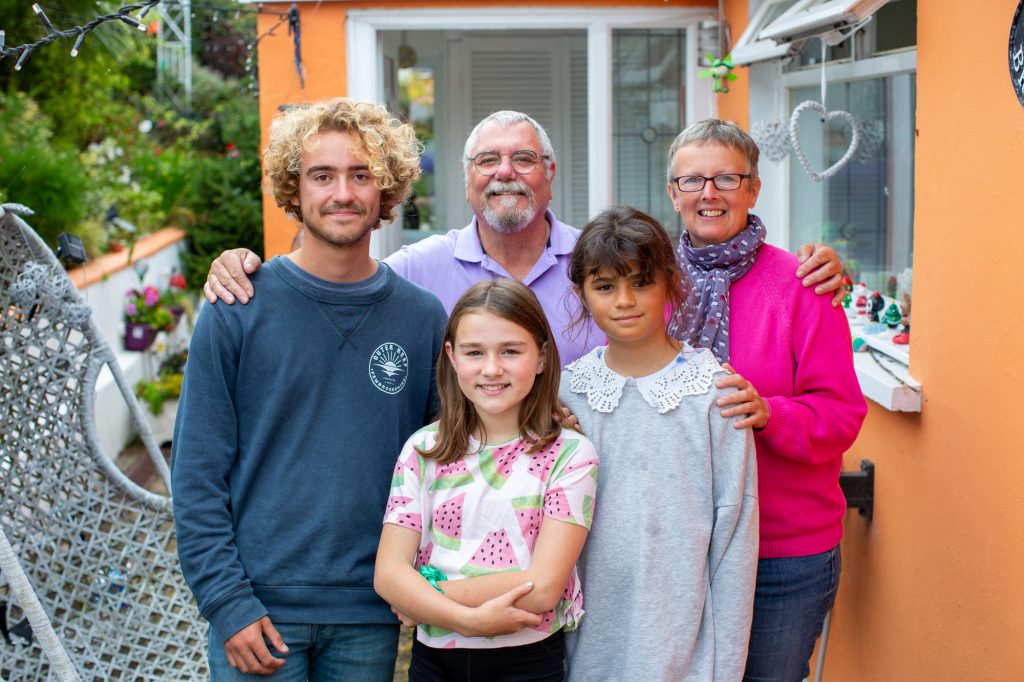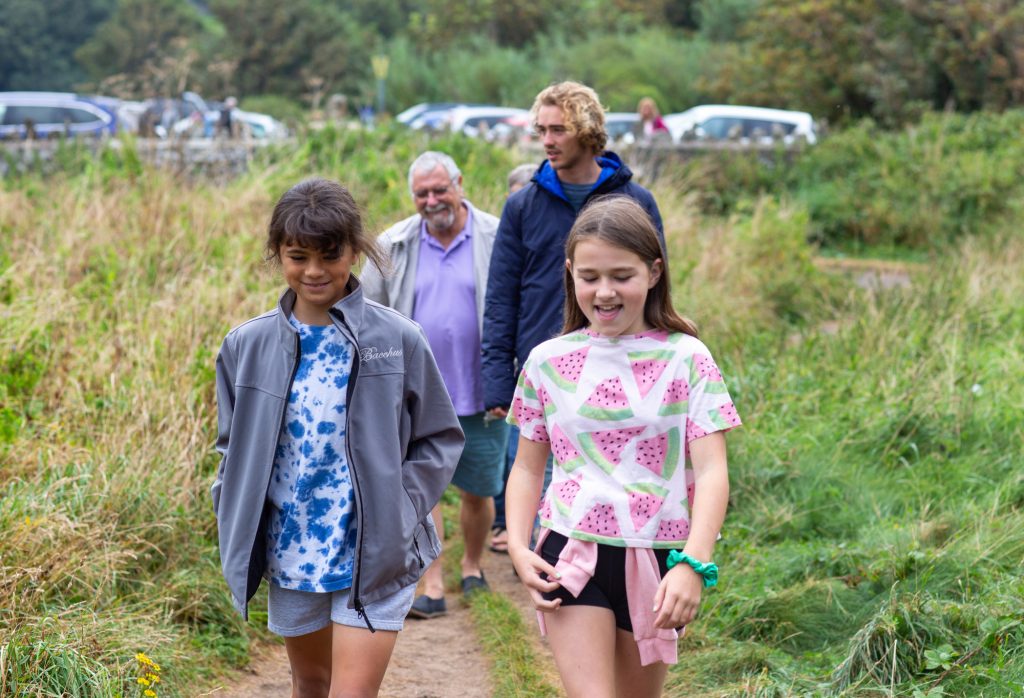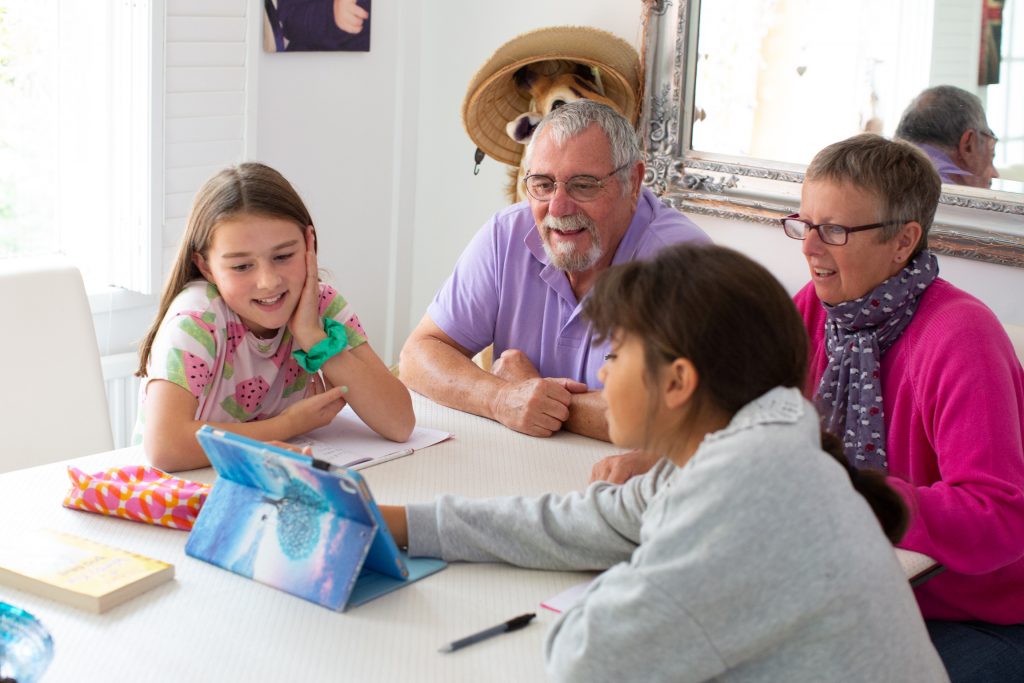
Liz and her husband Joe have been foster carers with Foster Wales Blaenau Gwent for around four years. Before that, Liz fostered with an Independent Fostering Agency (IFA) for around fourteen years.
We talked to Liz and Joe about their fostering experience and asked Liz why she decided to transfer from an IFA to Foster Wales.
“I’ve been fostering for over 18 years and it’s just something I always wanted to do. I don’t know why; I think I just enjoy being a mum.”
“I started fostering with a commercial agency and was with them for over fourteen years. I never wanted it to be a job, and for an agency, it’s got to be a business. It started to be so obvious for me, and it felt horrible, knowing that, for example, they put tenders in for children. It was all about the money.”
“Throughout the years, I’ve also worked with Blaenau Gwent, and many of my foster children came from their local authority. I enjoyed working with them; the social workers and managers were nice. I spoke to them one day knowing that it might be more convenient for me. I built relationships with them, and it felt like the right thing to do to transfer.”
“The commercial agency also wouldn’t give much thought into matching the children with the right foster family; they would just place children wherever they could.”

Liz and Joe enjoy fostering older children and teenagers. They feel like fostering this age group has worked out very well for them and express regret that there are not enough foster carers who would like to foster teens.
“We didn’t specifically choose to foster teenagers; it just happened, but it really worked out for us. We have a boy who is now 17 and has lived with us since he was 4; we’ve seen him through all stages of his life so far. He is our boy and like a son to us. But we also have a teenage girl, who came to us when she was 12.”
“When you see a change in them and see them do well, this is where you feel rewarded for what you do.”
“When our girl came to us, she was a real challenge. She wouldn’t go to school, and she was troubled. If you saw her now, you’d see a totally different child. She loves swimming, plays hockey, and goes to school every day. She’s a lovely kid. All children come with challenges, not only teens.”
“Fostering teenagers is just like fostering any other age group. They are just like any other teenagers, not better, not worse. They all have their problems. Sometimes they can be troubled because nobody is listening to them, and they feel invisible. They are so frustrated that they shout because they are not being heard.”
“Some of these children are missing basic skills from their upbringing, so on occasion, we need to teach them how to use a knife and fork, tie their shoelaces or read the time on a clock. It’s very difficult to see them like this, but this is why we keep doing it. We want the best for them.”
Part of being a foster carer is to help maintain family bonds between children and their parents. Liz and Joe stress the importance of understanding the children’s parents and building good relationships with them, if possible.
“We get on with the parents as much as we can. It makes life a lot easier to have good relationships. Public perception is that these people don’t love their children, but it’s not true; they do love their children. We have never walked in their shoes, so we should never judge. They just haven’t had the best lives or upbringing themselves. Try to understand them, and you’ll see how most of them care about their children but lack skills.”
“We try to work with parents. We regularly speak to them, and they speak to us; they see that we want to help, and we want the best for their children. Sometimes we also have to stick up for the parents, act like mediators between them and the children, and help them to understand each other.”

Liz and Joe find it easier to foster teens because it allows them to work and foster. If your job is flexible, or you work part-time, or if your employer is a Fostering Friendly employer, you can combine it with fostering, and be supported in this journey.
“When you foster teenage children it’s easier to work and foster. Our foster children are old enough to stay home alone, they enjoy it. It’s just like any normal family – mum and dad go to work.”
“Our teenage boy is now 17, so he knows how to cook his food, and how to stay safe and he never lets us down, if anything he always positively surprises us.”
Liz and Joe also spoke a lot about the support they receive from the local authority fostering team.
“We have support from the school, a great social worker, and our children’s social worker has been brilliant. We really get on with them and never feel alone. They trust us and let us make our own decisions, but every single time we need them, they are always there to advise and support us.”
“When we started fostering with the Foster Wales Blaenau Gwent team, they also offered this one-to-one service, MyST. This is only available in the Gwent region. I must say, the MyST team are absolutely amazing! They have got the best people working there. Joe says that when Jennie comes to see us it’s just like getting out of a warm bath (laughs). She calms everything down. Even when our children finished with the MyST team, we could still contact them for advice, and we still keep in touch to this day.”
Fostering is not something you start doing overnight. But you don’t need to be a superhero, have special qualifications, skills, or a long childcare experience to become a foster carer. What do you need to be a foster parent?
Liz said, “You probably need a little bit of patience (laughs). Personally, having my own children, who were teenagers at the time, gave me some parenting experience that came in handy. I never felt overwhelmed by the challenges that came with some foster children, thanks to the experience I gained from raising my teenage boys.”
Joe added, “I think we are just normal. We are just a normal family. We all sit down and eat together, and we do fun stuff together. We set boundaries, just like we would to our own children, and we have rules. But we think that it really works.”
“Many foster children strive when you create some routines for them and show that you care for them. They know I worry when they go out and do not come back home on time. I think it makes them feel that somebody cares, and they want to do good and not disappoint you.”
Liz and Joe prove that you can foster if you only have empathy, the capacity to care, and willingness to help.
“Show them a family, love them, give them a little bit of routine and set some boundaries, teach them good manners.”
“And most importantly, listen to them, never talk at them. Especially teenage children – they need to be heard. It drives them crazy if nobody listens to what they want to say. If you have good communication skills and know how to listen, you will be fine.”
“Treat them like your own children. Teach them how to be kind, be kind to them, teach them respect for others and appreciation for diversity – other kids’ background, faith, sexual orientation etc. It’s very important when bringing up rounded-up individuals.”
“We also never tell anybody that they are children in care. Everywhere we go we go as a family, and that’s how we want them to feel.”

Foster Wales is in desperate need to recruit more foster carers for children in Wales, who need safety and a supportive, loving environment. Liz and Joe encourage more people to come through and enquire about fostering with the local authority Foster Wales team.
“It’s a wonderful thing to do, and even some of the children who had more problems and were more challenging for us still stay in touch with us, and that’s just lovely. You think, well, I might have done something good there!”
“We would say do it, but you have to put some thought into it. It’s not a walk in the park. Every child is different, so you must be prepared for the unknown and new challenges with each new placement.”
Joe added: “You have to give it 100%; you can’t fake it. We could never treat it as a job. We couldn’t do it if we didn’t love it and love the children as well. We love every single one of them.”
“Also, at first I would take everything personally. Negative feedback or a child’s behaviour would upset me hugely. You must not take things personally in fostering. This is what we learned after all these years. Just learn from it and keep going.”
“All in all, it’s something we would definitely recommend. When you see children turn their lives around, there’s just no feeling like that.”
Do you think you could make a difference like Liz and Joe and become a foster carer?
Why not get in touch with your local authority fostering team today? They will provide you with further information and help to guide you through the process.
If you live in Wales, visit the Foster Wales website where you can find all the information to contact your local authority service.
Living in Blaenau Gwent, Wales? Send us a message, and we will get back to you for a friendly, informative chat.
Choosing Foster Wales, your Local Authority fostering service is a decision to work with real people in your community, who care for children, not for profit.
Our fostering success stories are based on the real-life experiences of Local Authority Foster Carers in Wales. To protect their privacy, and the privacy of the children and young people to whom they provide care, love, and support, actors have stepped in to help us picture their amazing stories.

